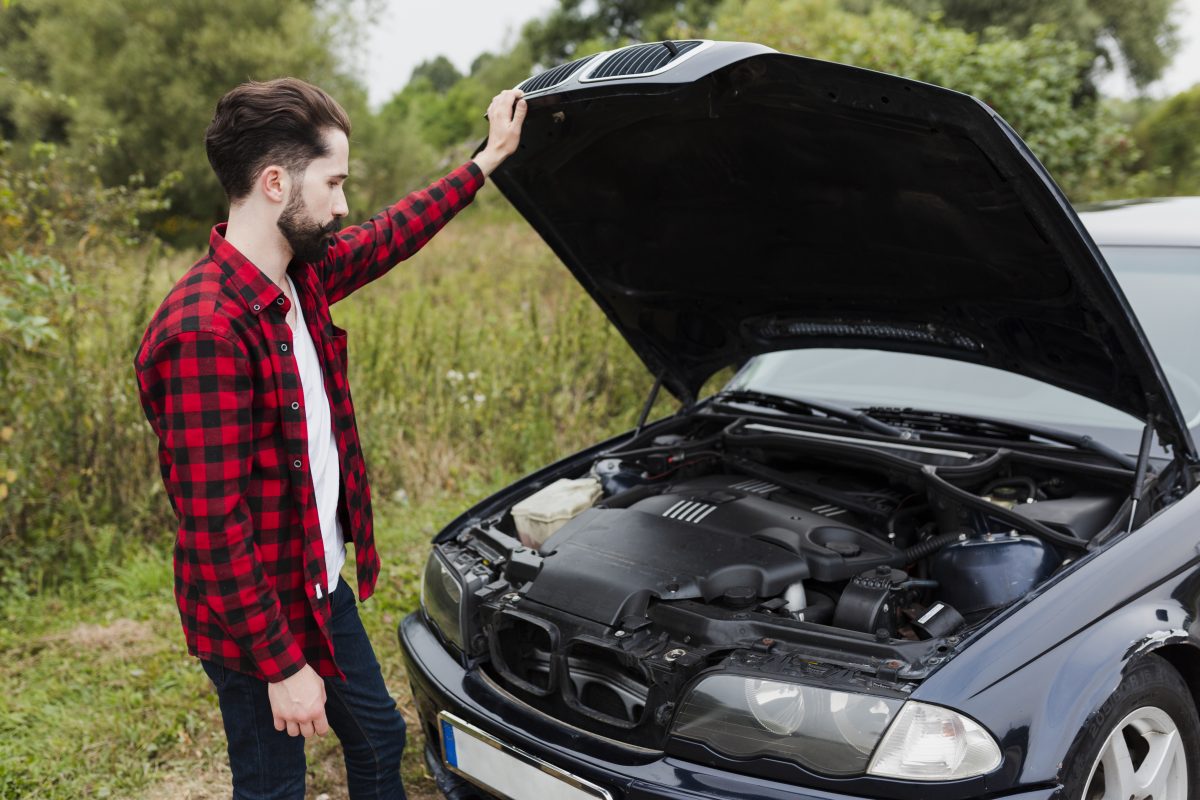How To Know If Your Engine Is Overheating

Engine overheating is a serious issue that can lead to significant damage if left unchecked. Whether you're a car owner or a mechanic, understanding the signs, causes, and solutions for overheating is crucial for maintaining vehicle health and avoiding costly repairs. This article will provide a practical guide to identifying and addressing engine overheating, covering common symptoms, troubleshooting techniques, and preventative maintenance.
Recognizing the Symptoms of an Overheating Engine
Early detection is key to preventing severe engine damage. Be vigilant and watch for these common symptoms:
- Temperature Gauge: The most obvious sign is a temperature gauge reading consistently in the "red" zone or significantly higher than normal. Don't ignore this warning!
- Steam from Under the Hood: This is a clear indicator of boiling coolant, often accompanied by a distinct odor. Immediately pull over to a safe location.
- Sweet Smell: A sweet, sickly smell, especially inside the car, could indicate a coolant leak. This could be from the radiator, hoses, or even the heater core inside the dashboard.
- Reduced Engine Power: Your car might feel sluggish or hesitant to accelerate, as the engine management system may reduce power to protect the engine from further damage.
- Knocking or Pinging Sounds: Overheating can lead to pre-ignition or detonation, causing knocking or pinging noises, particularly under acceleration.
- Warning Lights: Modern cars often have a dedicated "Engine Overheat" warning light. Heed its warning!
Troubleshooting the Causes of Overheating
Once you've identified overheating, it's time to pinpoint the cause. Here are some common culprits and how to troubleshoot them:
- Low Coolant Level: This is perhaps the most frequent cause.
Problem: Coolant leaks can occur from hoses, the radiator, water pump, or even the engine itself.
Solution: Check the coolant level in the radiator (when cool!) and the coolant reservoir. Look for visible leaks. If the level is low, top it off with the correct type of coolant (refer to your owner's manual). If you see leaks, address them promptly.
Example: A common issue in older Honda Civics is a leaking radiator due to corrosion. Replacing the radiator and coolant hoses can solve the problem.
- Faulty Thermostat: The thermostat regulates coolant flow to maintain optimal engine temperature.
Problem: A stuck-closed thermostat prevents coolant from circulating, leading to rapid overheating.
Solution: A mechanic can test the thermostat. If it's faulty, it needs replacement. Sometimes, a malfunctioning thermostat can be diagnosed using an OBD-II scanner, which might show a code related to coolant temperature regulation.
Example: In some Ford F-150 models, a sticking thermostat can cause rapid overheating, especially when towing or under heavy load.
- Radiator Issues: The radiator dissipates heat from the coolant.
Problem: A clogged or damaged radiator can't effectively cool the coolant. Clogs can be caused by debris, scale buildup, or corrosion.
Solution: Inspect the radiator for debris (leaves, bugs) blocking the fins. A mechanic can flush the radiator to remove internal clogs. In severe cases, radiator replacement might be necessary.
Example: On many BMW 3-Series models, the radiator can become clogged with debris, especially in areas with high pollen counts.
- Water Pump Failure: The water pump circulates coolant through the engine.
Problem: A failing water pump can't circulate coolant effectively, leading to overheating. Symptoms include a whining noise from the engine, coolant leaks from the water pump area, or a loose water pump pulley.
Solution: A mechanic can inspect the water pump for leaks, noise, and proper operation. Replacement is usually required for a failing water pump.
Example: Subaru engines are sometimes prone to water pump failures, which can cause significant overheating issues if not addressed.
- Head Gasket Leak: A blown head gasket can allow combustion gases to enter the cooling system, causing overheating.
Problem: This is a serious issue that can lead to engine damage. Symptoms include white smoke from the exhaust, coolant bubbling in the reservoir, and oil mixing with coolant (or vice versa).
Solution: A compression test or a leak-down test can help diagnose a head gasket leak. Repairing a head gasket is a complex and expensive job typically requiring professional attention.
Example: Some older Nissan Altimas are known to develop head gasket leaks over time, leading to overheating and other engine problems.
- Faulty Cooling Fan: The cooling fan helps to cool the radiator, especially when the car is stationary or moving slowly.
Problem: A malfunctioning fan, whether it's electric or belt-driven, can prevent adequate cooling.
Solution: Check if the fan is running when the engine is hot. If it's not, check the fan motor, relays, and fuses. A mechanic can diagnose the fan control system.
Example: Many Toyota Camrys have electric cooling fans that can fail over time, causing overheating in stop-and-go traffic.
Preventative Maintenance for a Cool Engine
Regular maintenance is the best way to prevent engine overheating. Follow these tips:
- Regular Coolant Flushes: Follow your vehicle's recommended maintenance schedule for coolant flushes. This removes contaminants and ensures optimal cooling performance.
- Inspect Hoses and Belts: Regularly inspect coolant hoses and belts for cracks, leaks, or wear. Replace them as needed.
- Check Coolant Level: Regularly check the coolant level and top it off as needed. Use the correct type of coolant.
- Monitor Temperature Gauge: Pay attention to your temperature gauge and investigate any unusual readings.
- Professional Inspections: Have your cooling system inspected by a mechanic during routine maintenance.
By understanding the symptoms, causes, and preventative measures related to engine overheating, you can keep your car running smoothly and avoid costly repairs. Remember to prioritize safety and seek professional assistance when needed. A well-maintained cooling system is essential for the longevity and reliability of your vehicle.
